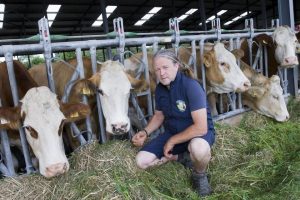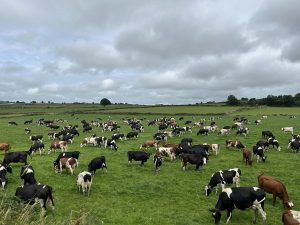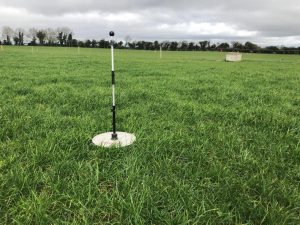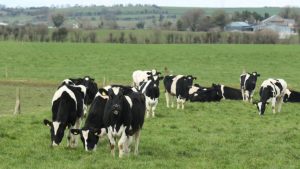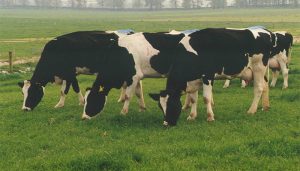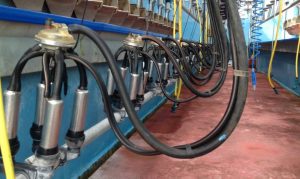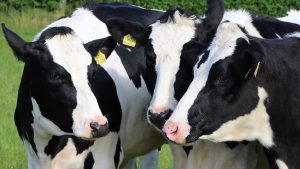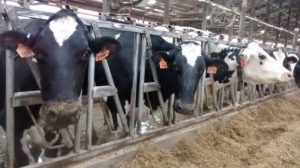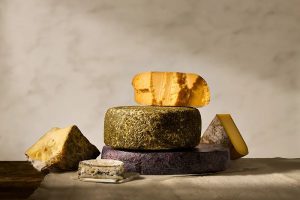
Half of Irish rivers and lakes failing minimum environmental quality standards due to high levels of nitrates and phosphates from agriculture.
Government ministers promise no cuts to the dairy herd, but the State’s climate strategy will do it indirectly. Ireland’s dairy sector is blue chip. Wages averaged over €97,000 last year in the face of rising input costs. No other farming enterprise here commands that sort of return. The sector accounts for over €5 billion in exports and is the single largest component of our food and drink trade.
What makes it so profitable is the “value add” – the amount by which the value of a good is increased at each stage of production.So when it comes to shouldering the burden of emissions cuts – agricultural emissions are due to be cut by 22-30 per cent as part of the State’s climate action plan – dairy advocates can reasonably argue that the focus of the cuts and the reforms should be, not exclusively but mainly, elsewhere.
Expand Government ministers promise no cuts to the dairy herd, but the State’s climate strategy will do it indirectly.Over half of us are cleansing wrong – here’s how it’s done By 09th Jul 2022 The dermatologist guide to cleansing correctly, as apparently over half of us aren’t washing our faces properly.Housing Almost half of Ireland’s local authorities still have no full-time role in place for tackling vacancy as the government prepares to introduce a new vacant homes tax as part of Budget 2023.“Airbrush diffuses the skin and acts as a beautiful soft-focus highlighter while evening skin tone, fine lines and pores for that ‘your skin but better’ finish.
Ireland’s dairy sector is blue chip. Wages averaged over €97,000 last year in the face of rising input costs. With extra time at home, we’re trying our best to improve our skincare routine habits, with 64% of us having changed our cleansing routines in the last year as a direct result of the pandemic. No other farming enterprise here commands that sort of return.. The sector accounts for over €5 billion in exports and is the single largest component of our food and drink trade. The Cerave surveys show that 55% of us tend to over or under-wash our faces, and 42% are using just water to cleanse. What makes it so profitable is the “value add” – the amount by which the value of a good is increased at each stage of production. ‘LOVE A GOOD DUPE’ In a video labelled “we love a good dupe”, she demonstrated both products.
So when it comes to shouldering the burden of emissions cuts – agricultural emissions are due to be cut by 22-30 per cent as part of the State’s climate action plan – dairy advocates can reasonably argue that the focus of the cuts and the reforms should be, not exclusively but mainly, elsewhere. Alexis Granite. Beef farming, for instance, is predominantly loss-making without EU subsidies and on a hectare-by-hectare basis more carbon intensive. Dairy has one major Achilles heel, however: water quality. Build-up of these toxins can result in everything from lack of luminosity to clogged pores, dry, irritated skin, breakouts and even acne. The counties that have soaked up the expansion in dairy, or pivoted more into dairy, since the lifting of EU milk quotas in 2015 – Cork, Waterford, Carlow, Kilkenny and Kildare – are the same ones that have experienced the biggest declines in water quality. A senior Leinster House official said that if you were to overlay a map of dairy expansion since 2015 with a map of deteriorating water quality zones, they’re almost a match. Cleansing also ensures a fresh canvas on which to apply additional products within your skincare routine, allowing them to penetrate more effectively.” OPINION DIVIDED skincare pro has divided opinion by revealing her controversial opinions about products she suggests “staying away” from.
The problem is the industry’s intense use of nitrogen-based fertilisers and/or livestock manure, which run off the land, polluting waterways. This is aggravated by the fact that 7,000 dairy farmers enjoy a European Commission-approved derogation that allows them to use additional nitrate, up to 250kg of livestock manure per hectare. Don’t use scrubs “In winter, the skin tends to be very dry and the skin barrier is already defective and when you use mechanical and even chemical exfoliation on damaged skin it can cause even more irritation, redness, hyperpigmentation. An Taisce is taking a legal action against the derogation. Since the lifting of EU quotas in 2015, Irish milk output has effectively doubled to 10 billion litres while our dairy herd has swelled by a third to 1. Stay away from hot water According to the study, 69% of people surveyed use warm or hot water when cleansing.6 million animals.
At the same time, the Environmental Protection Agency (EPA) has highlighted a major decline in water quality. “Washing with water that’s too hot can be an irritant to the skin, leaving it feeling sensitised, tight and dry,” says Dr. The agency estimates that approximately half of Irish rivers and lakes are now failing to meet minimum environmental quality standards due to high levels of polluting nitrates and phosphates, most of which come from agriculture. “Rivers such as the Bandon, Lee, Blackwater, Suir, Nore, Barrow and Slaney have high nitrogen levels with significant implications for the marine environments they flow into,” the EPA said in a recent report. “Water that is too hot can also be damaging to the skin barrier and strip the skin of its natural oils. This is a well-worn path internationally. New Zealand, Ireland’s dairy doppelgänger in the southern hemisphere, went on a similar expansion path in the 1980s and 1990s, which exacted a major toll on water quality there.” Just cleansing with water is not enough As Dr.
The Netherlands has just recently been forced to cull part of its dairy herd while imposing strict phosphate quotas on dairy farmers – a source of major controversy – in response to a rapid decline in water quality there since the lifting of EU quotas. EU policeman If Ireland’s water quality doesn’t start to improve by next year, the European Commission will begin cutting the levels of nitrate that farmers here can spread on the land. “Water on its own is more damaging than water plus a good product, because a mild product will neutralise hard water,” says Professor Michael J Cork. Not for the first time, the EU will act as policeman for the Irish environment. This is the backdrop to an intense debate going on at Cabinet level, one that has been overshadowed by the recent surge in inflation and the cost-of-living squeeze. “For me, one cleanse in the morning and one in the evening should be more than sufficient if you’re using the right products for your skin and cleansing deeply and thoroughly every time,” says Dr Granite. On one side is Green Party leader and Minister for the Environment Eamon Ryan; on the other is Minister for Agriculture Charlie McConalogue.
Ryan wants deeper emissions cuts, above the 22 per cent lower bound limit specified in the State’s climate plan while McConalogue is resisting on the grounds that the 22 per cent will involve significant challenges and cutbacks in itself.” Don’t be tempted into overdoing it with active cleansers According to Dr Granite, cleansing is “a functional step that, when it’s done right, creates the perfect canvas for the rest of your routine. Both are under intense pressure, from environmental NGOs on one side and farming organisations on the other. When the State’s climate plan was finalised last year, a report by consultancy KPMG suggested agricultural emissions cuts above 21 per cent would require a reduction in the national herd.” That’s not to say that active cleansers have no benefit, just make sure you’re not doubling up on the ingredients in your routine. Talk of reducing herd numbers tends elicit strong reactions from farmers, who already feel squeezed by the drive for ever cheaper food. At first the Government was vague on the issue, talking about “stabilising” herd numbers. “Over complex formulations contain ingredients we don’t want, and over complex regimes can cause damage to the skin.
But more recently, ministers and rural TDs have been more forthright, confidently stating there will be not cuts to herd numbers. But here’s the rub.” Related Stories. Implicit in the State’s climate plan for agriculture is a reduction in the allowable use of fertilisers, a move that will reduce the number of cows dairy farmers can maintain on a given piece of land. “We estimate that the change in the nitrates levels being proposed by the Government will see the middle strata of Irish dairy farmers – the people on 50-odd acres with 80-odd cows – having to lose at least 25 per cent of their herds,” the Irish Creamery Milk Suppliers Association says. So while Government ministers promise no cuts to the dairy herd, the State’s strategy will do it indirectly.
This verbal sleight of hand is now dawning on farmers and there is considerable disquiet. Agriculture was always going to be trickiest element of Ireland’s climate equation and so it is proving.





